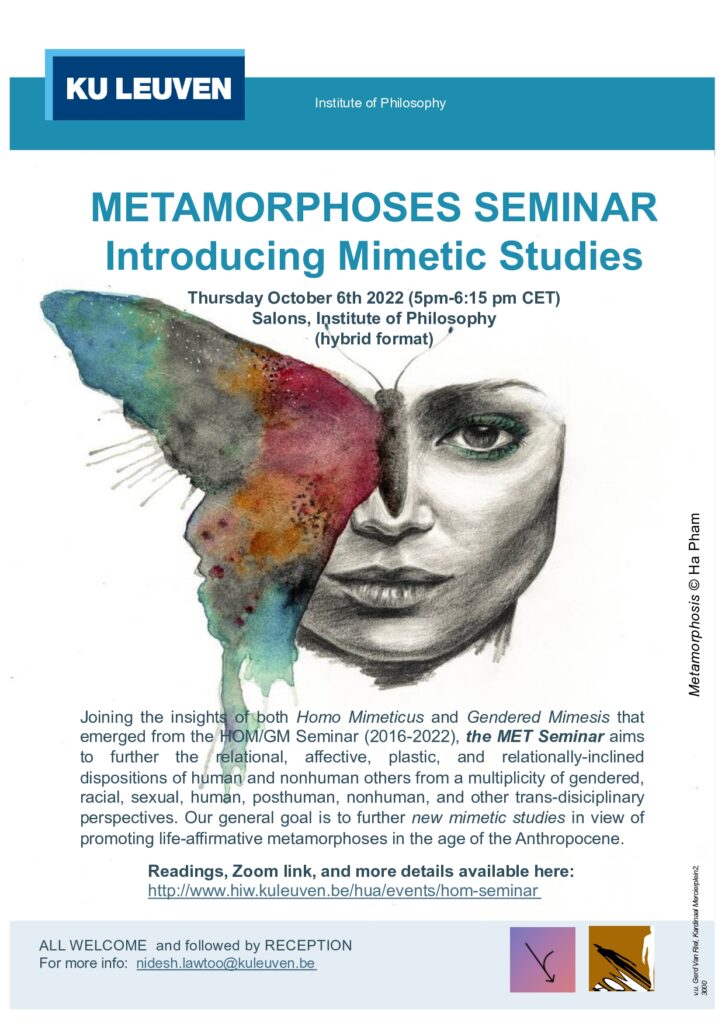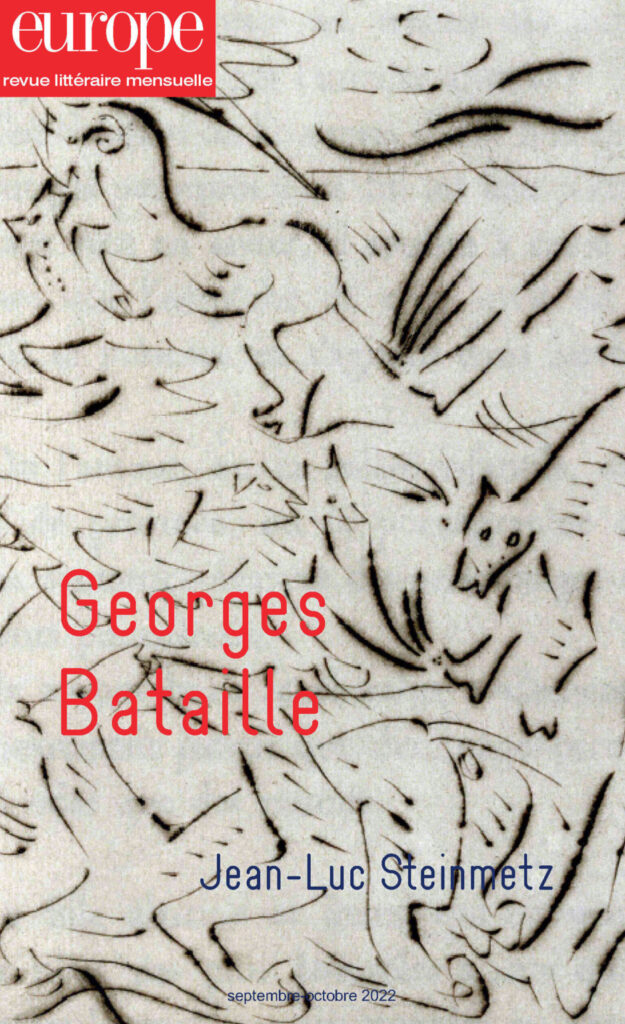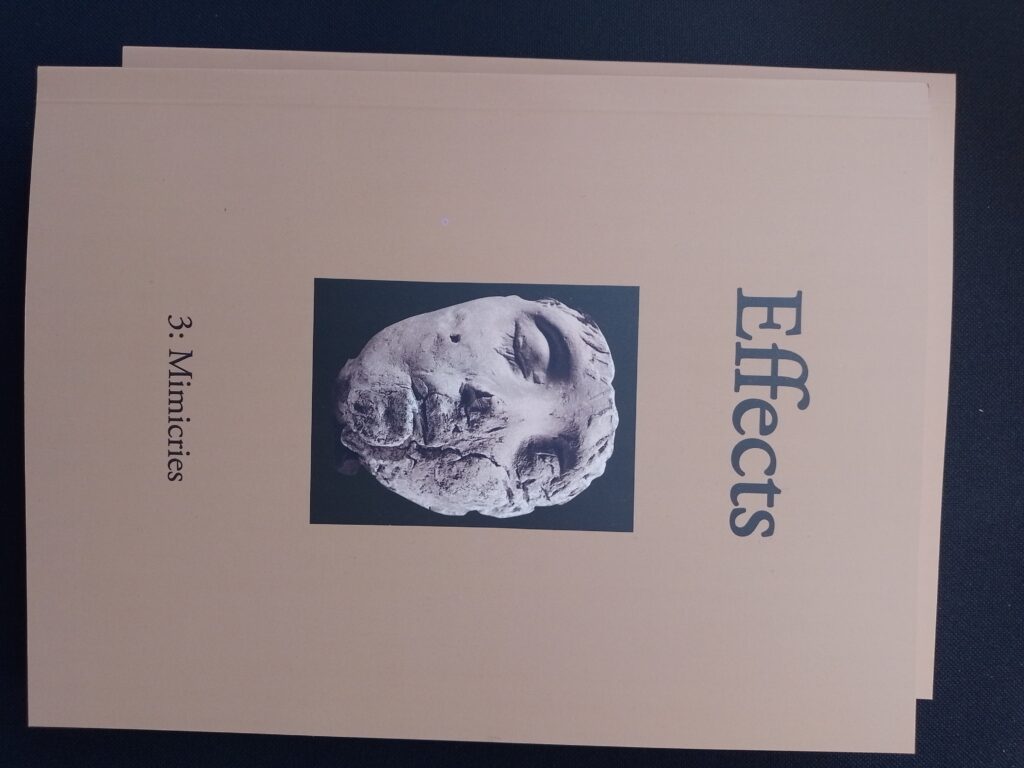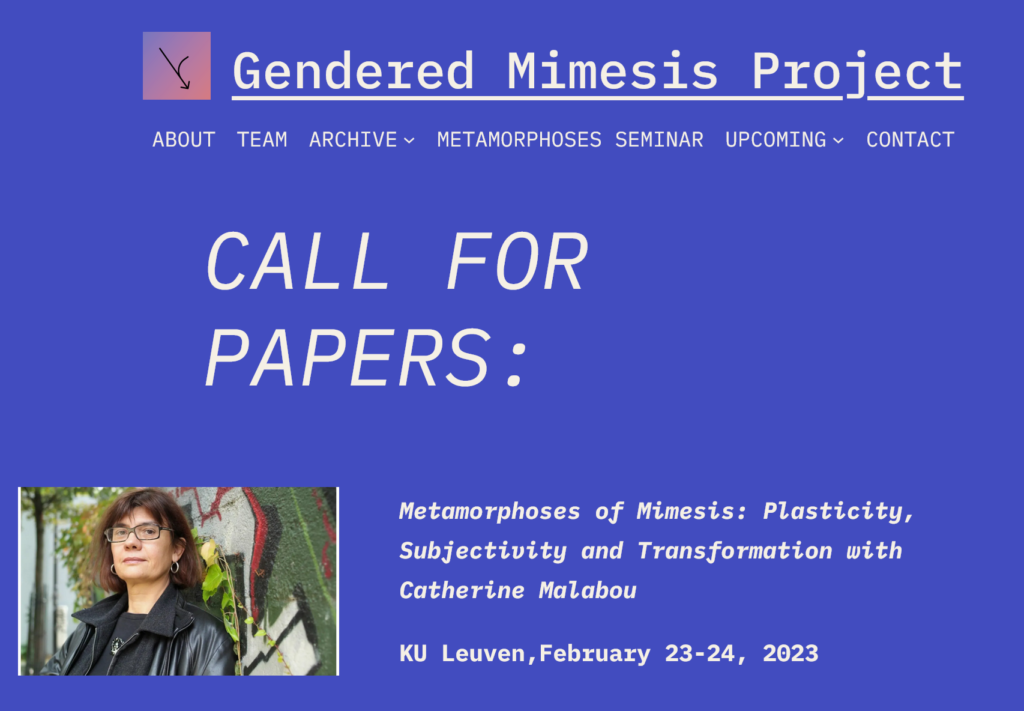
If it is true that humans are mimetic animals (or homo mimeticus), and if it is true that we are entering an epoch of catastrophic transformations (or Anthropocene), which metamorphoses do we want to promote to affirm survival in the present and future? Mimetic studies should have a role to play in charting metamorphoses for the future. More information available here.





